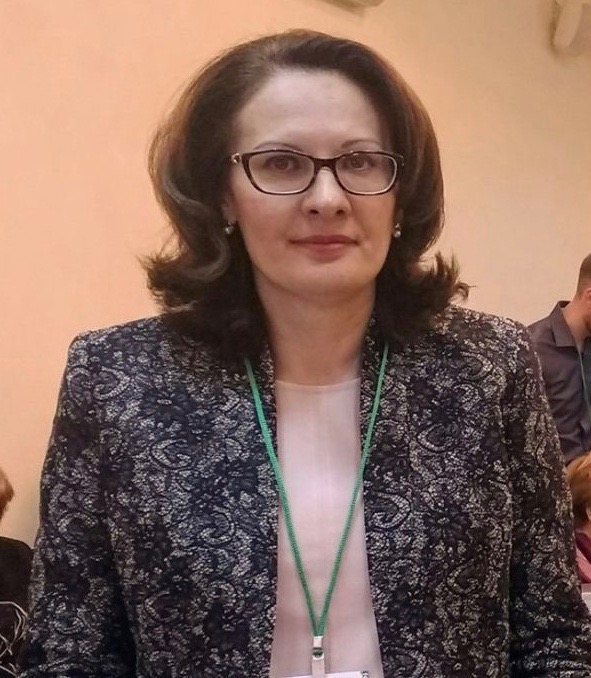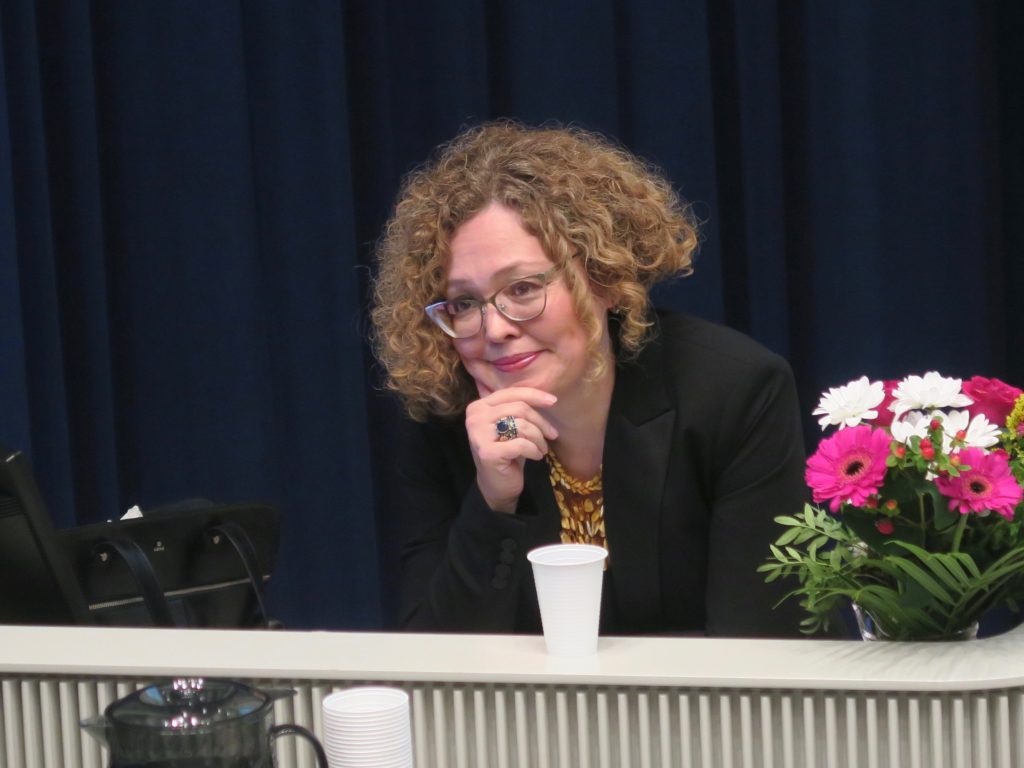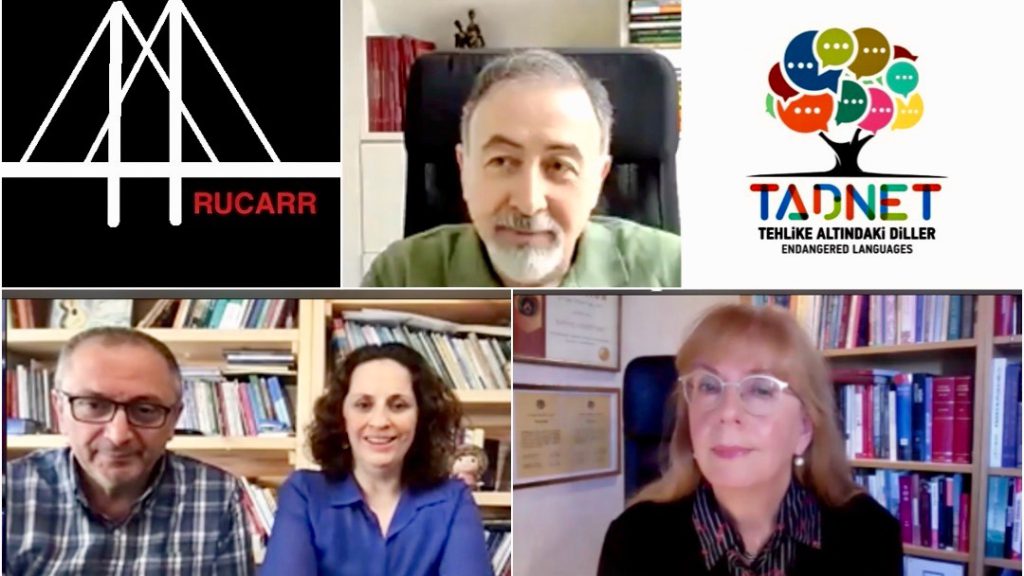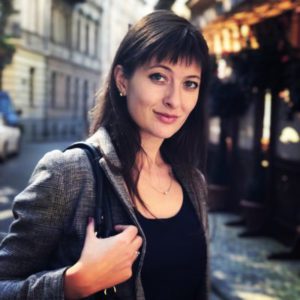When? May 24, 15:15-17:00
Where? https://mau-se.zoom.us/j/65216457342
Dr Karolina Kluczewska, FWO postdoctoral fellow
Post-socialist welfare in the making: Family policies in Poland, Russia and Tajikistan
This research explores changing conceptions of welfare and approaches to welfare provision in the post-communist space in the last three decades. It involves a comparative study of Poland, Russia and Tajikistan, all of which experienced an abrupt dismantling of the socialist-era state-centred welfare system in 1989/1991. Taking the case of family policies, it looks at what meanings policy-makers and elites in the three countries have attributed to family and how they negotiated their understandings the ‘right’ family model. It also analyses which social policy frameworks and specific, at times controversial, social protection measures were adopted as a result.
Laura Luciani, PhD Candidate
Re-politicising Human Rights ‘Promotion’: EU Interventions and Civil Society Agency in the South Caucasus
In the last decade, under the Eastern Partnership, the European Union has stepped up its support to civil society in the South Caucasus, considering it as an asset for bottom-up democratic ‘transition’ and an important partner in the promotion of human rights. Foucauldian literature has problematised the depoliticising and homogenising outcomes of the EU’s value promotion and funding for human rights organisations: through the transfer of neoliberal rationalities, human rights are rendered a legal-technical issue and indicator of partner countries’ approximation to (superior) EU standards, disregarding domestic contexts, legitimacy and power dynamics. Simultaneously, within a broader contestation of the Western liberal order in Eurasia, the norms promoted by the EU – notably, gender equality and LGBT+ rights – have become increasingly politicised, while the space for civil society to operate has been shrinking. In a shifting geopolitical context, human rights activists in the South Caucasus find themselves in a liminal position, caught in-between external interventions/dependencies and domestic resistances to EU-sponsored paradigms. However, these actors’ perspectives have remained so far understudied in EU external relations literature. Informed by poststructuralist and postcolonial thinking, this talk explores the strategies activists in the South Caucasus deploy to navigate these tensions and retain agency in the context of EU interventions. Building on a combination of qualitative methods including in-depth interviews, multi-sited observations and discourse analysis performed on a variety of texts, it provides empirical illustrations of how activists in the South Caucasus respond to and negotiate EU human rights interventions, by re-politicising them. It is argued that grassroots, critical alternatives to human rights promotion are being articulated across the region, which challenge both the EU’s neo-colonial governmentality as well as domestic authoritarianisms. At a time when the EU is showing a more assertive posture on the international scene, the talk also raises critical questions as to whether this entails the recognition of locally-grounded calls for social justice.
Gaëlle Le Pavic
Access to social services in de facto states – Case studies of Transnistria and Abkhazia
The end of the USSR resulted not only in 15 countries (re)proclaiming their independence but also in the emergence of de facto states, aiming at being independent but lacking a (full) international recognition. De facto states have been studied mostly form a (geo)political and economic perspective but little is known about social aspects, in particular about the impact of the de facto statehood on access to social services and the crucial role of Civil Society Organisations (CSOs). To address this gap and understand how de facto borders and de facto bordering practices impact the provision of social services in Abkhazia and Transnistria, this PhD research focuses first on the impact of de facto borders on local CSOs as a key actor to bridge the gap left by the de facto statehood in social services provision. The support provided by international organizations and donors is also investigated. Secondly, we aim at documenting and analyzing the impact of de facto borders and bordering practices on beneficiaries of social services in Abkhazia and Transnistria focusing on the strategies to access social services and copying mechanisms they develop. To achieve this, we rely mostly on a qualitative methodology including semi-structured interviews, in-situ observations and focus groups.
Louise Amoris
Liminality and Armenia: a bridge between the EU and Russia?
Whereas there exists a wide literature in IR on the degradation of the EU-Russia relationship, with a consensus that there is little prospect for improvement in the near future, it mainly focuses on these two regional powers, discarding any true agency of countries in the so-called ‘shared neighbourhood’ on the evolution of the regional environment and their own future. The countries of the Eastern European and South Caucasus region are too often seen as objects rather than subjects, stuck between two regional powers and their respective projects, namely the Eastern Partnership and the Eurasian Economic Union. Shifting the focus on the ‘in-between’ countries from the perspective of liminality allows us to transform them into subjects with the potential for bringing about change in the region. Based on the theory of liminality, in dialogue with the post-colonial concept of hybridity, the paper qualifies as liminal those who fall in-between established categories, who are partly-Self partly-Other. Through this ambiguity, liminal actors have the capacity to subvert and challenge the established order, thus opening up possibilities for new orderings. From this view, the paper asks to what extent Armenia, being on the ‘margins’ of both the EU and Russia, tries to turn this rather uncomfortable position into a source of agency and constitutive power. Concretely, considering the country’s specific position as a member of the Russian-led Eurasian Economic Union, while still striving to deepen its cooperation with the EU, we wish to question whether Armenia perceives itself as a bridge between the EU and Russia, and how perceptions of its Self and these two Others are changing over time. Interviews with political elites, experts and civil society representatives have been conducted in Armenia in the spring of 2022, from which preliminary findings will be presented.
Zulfiyya Abdurahimova-Carberry
Democracy promotion by the United States and the European Union in Azerbaijan: Why do authoritarian regimes react to democracy promotion differently?
Under what conditions do authoritarian regimes accept or reject democracy promotion by external actors? Empirical observations show that the responses of authoritarian regimes to democracy promotion vary across regimes and in some cases over time. This dissertation project investigates the causes and consequences of the divergent reactions of the Aliyev regime to Western democracy promoters from 1994-2021. In doing so, I examine the strategies of two governments: Haydar Aliyev’s (1993-2003) and that of his son Ilham Aliyev (2003-2021) in dealing with Western democracy promoters with a particular focus on the EU and the US. The starting point of the dissertation is that while Aliyev Sr. had balanced relations with Western actors without preferring one over another, Aliyev Jr. devised various instruments to control the activities of foreign actors in the country by demonstratively targeting the US organizations and their domestic partners, especially after the 2014 Ukraine crisis. What factors contributed to Aliyev Jr.’s departure from his father’s legacy? And why did he eliminate the DPP of the US while accepting (but reducing) that of the EU? These are two central questions that will steer the focus of this dissertation. The goal is to explain the underlying causes of the Aliyev governments’ different attitudes to the DPP by the EU and the US.
 Welcome to this hybrid event at Malmö University campus and Zoom!
Welcome to this hybrid event at Malmö University campus and Zoom! 



 Based on extensive original research, this book tells the astonishing story of early Soviet Abkhazia and of its leader, the charismatic Bolshevik revolutionary Nestor Lakoba. A tiny republic on the Black Sea coast of the USSR, Abkhazia became a vacation retreat for Party leaders and a major producer of tobacco. Nestor Lakoba became the unquestioned boss of Abkhazia, constructing a powerful local ethnic “machine” that became an influential component of Soviet patronage politics, provoking along the way accusations of nepotism, corruption, blood feuds, embezzlement, racketeering, and extrajudicial murder on a scale that shocked even hardened Communist Party investigators. Lakoba and his group faced a series of trials, investigatory commissions, and tribunals over allegations of malfeasance, yet they were repeatedly able to convince their powerful patrons of their irreplaceability, until at last they were destroyed through a public show trial during the peak of the Stalinist Terror. Through the prism of tiny Abkhazia, this book provides invaluable insights into the nature of the early Soviet system and the governance of Soviet national republics.
Based on extensive original research, this book tells the astonishing story of early Soviet Abkhazia and of its leader, the charismatic Bolshevik revolutionary Nestor Lakoba. A tiny republic on the Black Sea coast of the USSR, Abkhazia became a vacation retreat for Party leaders and a major producer of tobacco. Nestor Lakoba became the unquestioned boss of Abkhazia, constructing a powerful local ethnic “machine” that became an influential component of Soviet patronage politics, provoking along the way accusations of nepotism, corruption, blood feuds, embezzlement, racketeering, and extrajudicial murder on a scale that shocked even hardened Communist Party investigators. Lakoba and his group faced a series of trials, investigatory commissions, and tribunals over allegations of malfeasance, yet they were repeatedly able to convince their powerful patrons of their irreplaceability, until at last they were destroyed through a public show trial during the peak of the Stalinist Terror. Through the prism of tiny Abkhazia, this book provides invaluable insights into the nature of the early Soviet system and the governance of Soviet national republics.
 Welcome to the book presentation with Tinatin Japaridze on her debut monograph Stalin’s Millennials: Nostalgia, Trauma, and Nationalism
Welcome to the book presentation with Tinatin Japaridze on her debut monograph Stalin’s Millennials: Nostalgia, Trauma, and Nationalism


 The recent rise of illiberal, conservative and right-wing populist movements poses an acute threat to democracy and equality in Europe. One pervasive but underresearched strand of these movements advocates ‘traditional family values’, in particular conservative sexual and gender politics, in the name of protecting children. With my project, l plan to fill this research gap through interdisciplinary research examining the discursive construction of the child as the ultimate site of vulnerability and risk, and hence in need of protection and policy intervention. The research is characterised by a significant comparative dimension, analysing discourses by conservative, ‘pro-traditional family values’ actors, from politicians to activists, in Germany and Russia. In my presentation for RUCARR, I will focus on Russian actors’ ‘traditional values’ discourse and -policies as they pertain to children.
The recent rise of illiberal, conservative and right-wing populist movements poses an acute threat to democracy and equality in Europe. One pervasive but underresearched strand of these movements advocates ‘traditional family values’, in particular conservative sexual and gender politics, in the name of protecting children. With my project, l plan to fill this research gap through interdisciplinary research examining the discursive construction of the child as the ultimate site of vulnerability and risk, and hence in need of protection and policy intervention. The research is characterised by a significant comparative dimension, analysing discourses by conservative, ‘pro-traditional family values’ actors, from politicians to activists, in Germany and Russia. In my presentation for RUCARR, I will focus on Russian actors’ ‘traditional values’ discourse and -policies as they pertain to children. Welcome to the Spring semester’s first seminar with Kamal Makili-Aliyev, LL.D. Senior Lecturer at the Dept. of Global Political Studies, Malmö University: The role of Azerbaijan in the non-aligned movement through the lens of international law and security.
Welcome to the Spring semester’s first seminar with Kamal Makili-Aliyev, LL.D. Senior Lecturer at the Dept. of Global Political Studies, Malmö University: The role of Azerbaijan in the non-aligned movement through the lens of international law and security.
 Varför utgör Navalnyj en sådan utmaning mot Putin och det etablissemang han leder?
Varför utgör Navalnyj en sådan utmaning mot Putin och det etablissemang han leder?